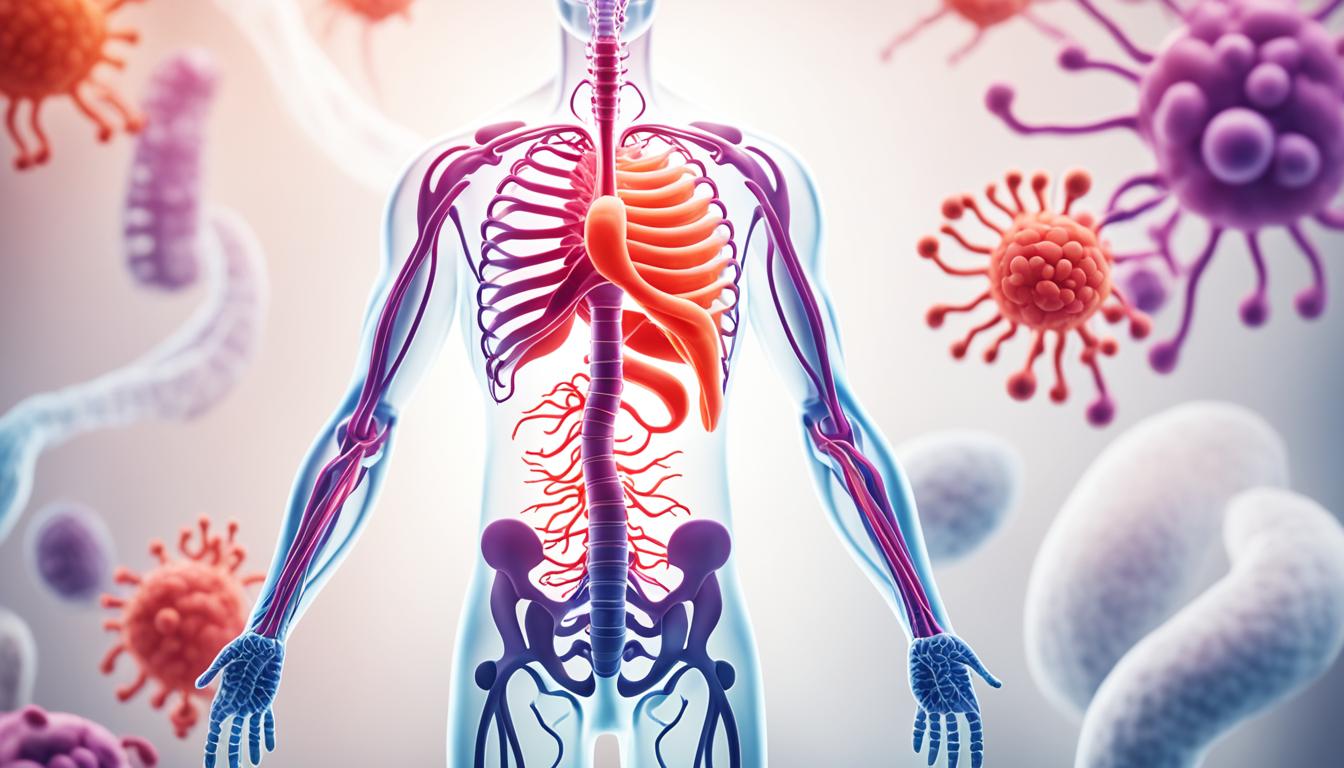Irritable bowel syndrome (IBS) is a common disorder affecting the large intestine. It leads to symptoms such as abdominal pain, bloating, diarrhea, and constipation. The exact cause of IBS is unknown. However, experts think it’s due to issues like abnormal gut movement, increased pain sensitivity, and gut microbiota imbalance.
Diagnosing IBS involves finding its recognizable symptoms and ruling out other conditions. Even though there’s no known cure for IBS, there are treatments to handle its symptoms and better gut health. These treatments can involve changes in diet, medications, and other methods.
Stem cell therapy has shown promise as a new treatment option for IBS. It aims to reduce symptoms and enhance gut health by fixing and regrowing the impaired gut tissue. Scientists believe stem cells may help the gut heal and lessen inflammation in IBS patients.
Addressing IBS effectively means looking at the patient’s symptoms and way of life. With a suitable treatment plan, those with IBS can find relief and get back their digestive well-being.
Key Takeaways:
- Irritable bowel syndrome (IBS) is a common digestive disorder characterized by abdominal pain, bloating, diarrhea, and constipation.
- The exact cause of IBS is unknown, but it is believed to involve abnormal gut motility, heightened pain sensitivity, and an imbalance in the gut microbiota.
- IBS is diagnosed based on symptom identification and the exclusion of other conditions with similar symptoms.
- Treatment options for managing IBS include dietary changes, medications, and alternative therapies.
- Stem cell therapy is an emerging treatment approach being explored for its potential in improving gut health and relieving symptoms in patients with IBS.
Causes and Risk Factors of Irritable Bowel Syndrome
Irritable bowel syndrome (IBS) is a tricky condition with many possible causes. The exact source of IBS is not clear yet. Still, we know a few things that might make it more likely to happen.
Abnormal Gut Motility and Sensitivity
Irregular muscle movement in the digestive tract is a key issue for IBS. This can lead to odd bowel movements, causing diarrhea and constipation. People with IBS might also feel more gut pain, which makes them more uncomfortable.
Alterations in Gut Microbiota
Your gut’s health relies on millions of tiny living organisms. When the good and bad bacteria in your gut get out of balance, IBS symptoms can get worse. This imbalance can hurt digestion, leading to problems like IBS.
Abnormalities in Gut Hormones and Neurotransmitters
Changes in the body’s natural chemicals can mess with the digestive system. This can lead to bloating, stomach pain, and changes in how often you go to the bathroom.
The Role of Stress and Diet
Both body and mind stress can kick off IBS symptoms. The way your brain and gut talk to each other affects your stomach health. What you eat also matters. Some foods might make IBS symptoms worse.
Physiological and psychological stress can make IBS worse. Diet is also very important. Foods high in FODMAPs can be hard on the stomach.
Epidemiology and Genetic Factors
IBS affects a lot of people around the world, about 10-15%. It’s more common in women than in men. It could also be passed down in families. Certain genes could make someone more likely to get IBS or react strongly to certain triggers.
To help people with IBS, it’s key to understand what causes it. Then, doctors can find the best ways to treat it. This can make life better for those with IBS.
Diagnosis and Treatment Options for Irritable Bowel Syndrome
Diagnosing irritable bowel syndrome (IBS) requires looking at specific symptoms. Doctors also check for other digestive disorders with tests like endoscopy and colonoscopy. These tests help to make sure IBS is truly the issue. Then, doctors and patients can talk about treating it.
Changing your diet is key for managing IBS. Doctors might suggest a diet low in FODMAPs or more fiber. These changes are to make your stomach less upset and help with regular bathroom visits.
Doctors might also give medicines to ease pain and deal with certain symptoms. Some medicines relax your gut muscles, while others help you go to the bathroom easily. Antidepressants can be used too, not just for the belly but also for any stress IBS causes.
Looking beyond medicine, acupuncture and probiotics can give some relief. Acupuncture can lower pain and make your gut work better. Probiotics, the good bacteria, can bring balance back to your gut and reduce symptoms. There’s also a new treatment using stem cells. This method aims to heal the gut damage and cut down on inflammation. In theory, it could bring a lot of relief and boost your gut’s health.

